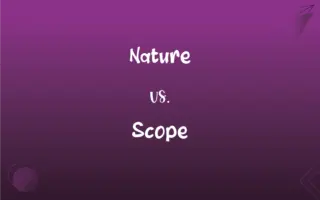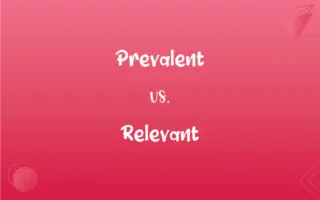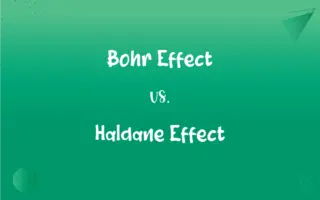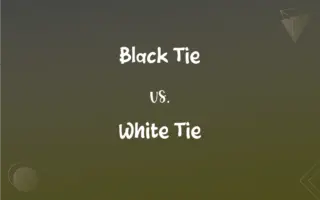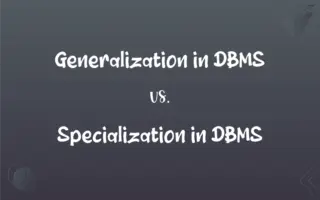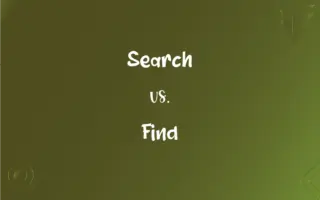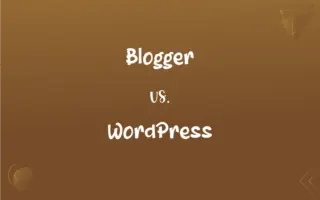Morals vs. Ethics: What's the Difference?
Edited by Aimie Carlson || By Harlon Moss || Updated on October 18, 2023
Morals are personal beliefs about right and wrong; ethics are shared rules or guidelines within a group or profession.
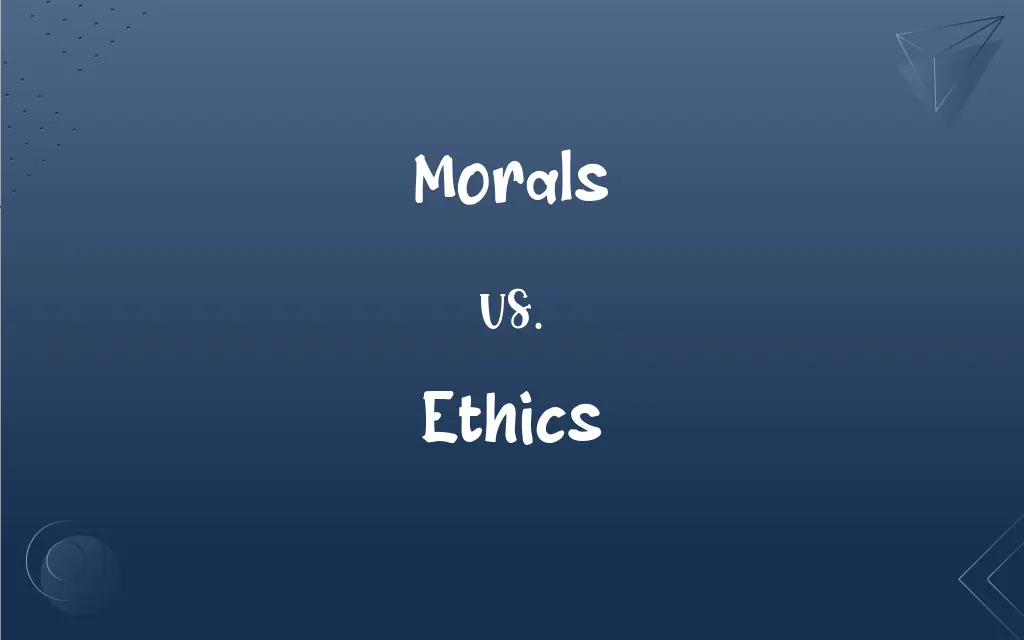
Key Differences
Both morals and ethics address concepts of right and wrong, but from slightly different perspectives. Morals typically refer to an individual's personal beliefs and values about good and bad. They are often deeply rooted in personal, cultural, or religious beliefs. In contrast, ethics are more about a set of rules or guidelines adopted by a group, community, or profession.
Morals are what an individual considers to be right based on their conscience or intuition. They act as a compass directing personal behavior in various situations. These beliefs might be influenced by upbringing, culture, or personal experiences. On the other hand, ethics relate to external standards. These standards might be set by a profession, organization, or society to ensure fair and harmonious interactions within that group.
Understanding the nuances between morals and ethics can be crucial in many settings. For instance, a doctor may personally believe in the sanctity of life due to their morals. However, they might need to adhere to the ethics of their medical board when making decisions about end-of-life care. This showcases how one's personal beliefs and professional guidelines can sometimes be in conflict.
In some cases, morals and ethics might overlap, but they still maintain their distinct meanings. Morals come from within an individual and are deeply personal, while ethics arise from external sources, like professional bodies or cultural norms. It's essential to recognize the difference to avoid confusion, especially in professional or academic contexts.
One can think of morals as the foundation of one's character, shaping personal decisions and actions. In contrast, ethics function as a bridge allowing different individuals with varying moral beliefs to work cohesively within a shared framework or system.
ADVERTISEMENT
Comparison Chart
Definition
Personal beliefs about right and wrong
Shared rules or guidelines within a group or profession
Source
Individual conscience or intuition
External standards set by groups, societies, or professions
Scope
Personal behavior
Behavior within a specific group or profession
Flexibility
Can be rigid based on personal beliefs
Can change based on group consensus or evolving standards
Influence
Upbringing, culture, personal experiences
Professional bodies, cultural norms, societal laws
ADVERTISEMENT
Morals and Ethics Definitions
Morals
Personal beliefs about right and wrong.
Her strong morals prevented her from lying.
Ethics
Rules or guidelines shared within a group or profession.
Medical ethics dictate how doctors should treat their patients.
Morals
One's standards for behavior based on beliefs.
Their morals align, making them great friends.
Ethics
Standards set by an external body or organization.
Business ethics ensure companies act responsibly.
Morals
An individual's understanding of good and bad.
His morals are influenced by his religious upbringing.
Ethics
Shared principles guiding group behavior.
Ethics in journalism promote truth and fairness.
Morals
Personal principles guiding behavior.
She always follows her morals, even when it's challenging.
Ethics
External norms shaping professional actions.
The code of ethics in law ensures justice.
Morals
Inner values dictating personal choices.
Due to his morals, he chose to return the found money.
Ethics
Collective agreement on right and wrong in a specific context.
Research ethics protect participants' rights.
Morals
Of or concerned with the judgment of right or wrong of human action and character
Moral scrutiny.
A moral quandary.
Ethics
A set of principles of right conduct.
Morals
Teaching or exhibiting goodness or correctness of character and behavior
A moral lesson.
Ethics
A theory or a system of moral values
"An ethic of service is at war with a craving for gain" (Gregg Easterbrook).
FAQs
How are morals formed?
Morals are often influenced by upbringing, culture, religion, and personal experiences.
Can one's morals conflict with professional ethics?
Yes, personal beliefs might sometimes differ from professional guidelines.
What are morals?
Morals are personal beliefs about what's right and wrong.
Can ethics influence personal morals?
Yes, exposure to shared standards can sometimes shape or reinforce personal beliefs.
How can one resolve conflicts between morals and ethics?
Through reflection, dialogue, and sometimes seeking guidance from trusted sources or mentors.
Why are ethics important in professions?
Ethics ensure standard behavior and promote trust within a profession or group.
Are morals universal?
Morals can vary among individuals based on their personal beliefs and experiences.
Why do ethical dilemmas arise?
They occur when there's a conflict between different ethical standards or between ethics and morals.
How do ethics differ from morals?
Ethics are shared rules or guidelines within a group or profession, while morals are individual beliefs.
How can morals influence decision-making?
Individuals often base decisions on their morals, prioritizing what they believe is right.
Are there universal ethics?
While some ethical principles are widely accepted, specifics can vary by culture or group.
Why is understanding the difference between morals and ethics important?
Recognizing the difference can prevent confusion, especially in professional or academic settings.
Is it possible to measure morals or ethics?
While difficult to quantify, they can be assessed through behavior and decision-making.
Do ethics change over time?
Yes, as societal norms evolve, ethics can change to reflect new understandings.
Can someone have good ethics but questionable morals?
It's possible, as ethics are external standards, while morals are personal beliefs.
Why do some professions have a code of ethics?
To ensure consistent behavior and uphold the profession's reputation and trust.
Can a person's morals evolve?
Yes, as individuals grow and have new experiences, their morals can change.
How can organizations ensure ethical behavior?
By establishing clear ethical guidelines and fostering an environment that values ethics.
Can two people have the same ethics but different morals?
Yes, they might adhere to the same professional standards but have different personal beliefs.
How do cultural differences impact morals and ethics?
Culture can influence both personal beliefs and shared standards within a community.
About Author
Written by
Harlon MossHarlon is a seasoned quality moderator and accomplished content writer for Difference Wiki. An alumnus of the prestigious University of California, he earned his degree in Computer Science. Leveraging his academic background, Harlon brings a meticulous and informed perspective to his work, ensuring content accuracy and excellence.
Edited by
Aimie CarlsonAimie Carlson, holding a master's degree in English literature, is a fervent English language enthusiast. She lends her writing talents to Difference Wiki, a prominent website that specializes in comparisons, offering readers insightful analyses that both captivate and inform.






